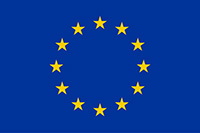What Information Should You Collect from a New Employee During Onboarding?
Onboarding
When hiring a new employee, it’s essential to gather the correct information for efficient and legally compliant administrative processing. This is particularly important in industries like retail, entertainment, and hospitality, where managing large numbers of employees is common. By collecting the right information, you ensure a smooth onboarding process and meet all legal obligations. Below is an overview of the most important information you need to collect during onboarding.
Basic Information
The employee’s basic information forms the core of your administration. This data is required for communication, payroll processing, and identification.
Full Name
As stated on the identification document. Note that some employees may use a different preferred name than their official name.
Address and Place of Residence
The employee’s home address, including postal code and city. This is important for payroll administration and any correspondence.
Date of Birth
To verify the minimum age and legal rights, such as wages under an age-related collective agreement.
Phone Number and Email Address
For contact and to share important information.
Identification Document
According to the Identification Act, as an employer, you must verify and record your employee’s identity. This can be done with:
Passport
ID card
EU Residence Permit
Work Permit (for non-EU citizens)
A copy of the identification document is often made for personnel records. Pay attention to the regulations for storing these copies, and take extra steps to protect your employees’ privacy, such as adding a watermark to the copy. Consider obscuring the BSN (social security number) and photo if needed.
Easily collect employee data with Integrate HR.
Bank Details
For salary payments, you need the employee’s correct bank details. Ask for their IBAN account number and the name as it appears on the bank account. Don’t forget to verify that the details are accurate to avoid issues with salary payments.
Tax Information
The tax authorities require certain information to apply payroll taxes correctly. The employee must complete a form to declare their payroll tax information, also known as the payroll tax statement. This form indicates whether the employee wants to apply tax relief and ensures that you don’t overpay taxes.
Certificates and Diplomas
In some roles within hospitality, retail, or entertainment, specific certificates or diplomas may be required, such as:
Social Hygiene Certificate
First Aid Diploma
HACCP Certificate (for food preparation)
Emergency Contact Details
It’s also wise to ask for emergency contact details, such as a family member or partner. This information can be used in case of an emergency at work.
Conclusion
The onboarding process requires thorough data collection to meet both legal and operational obligations. In industries like retail, entertainment, and hospitality, where high employee turnover is common, an efficient HR system like Integrate HR can help manage this data in an organized manner. With the right information at hand, you ensure not only a smooth onboarding process but also lay the foundation for proper payroll administration and employment relations.
